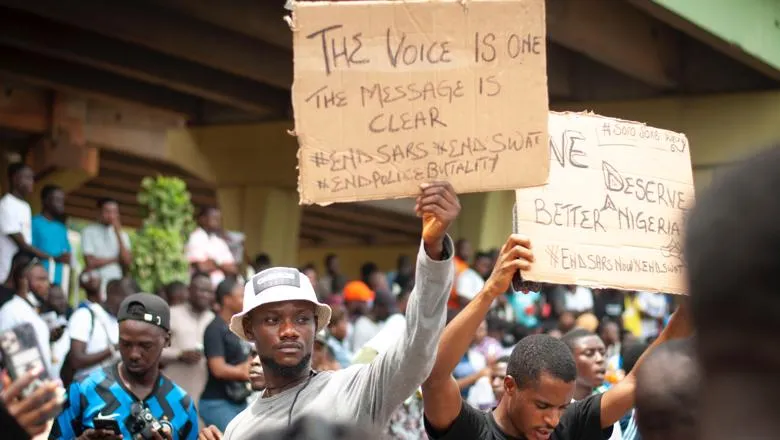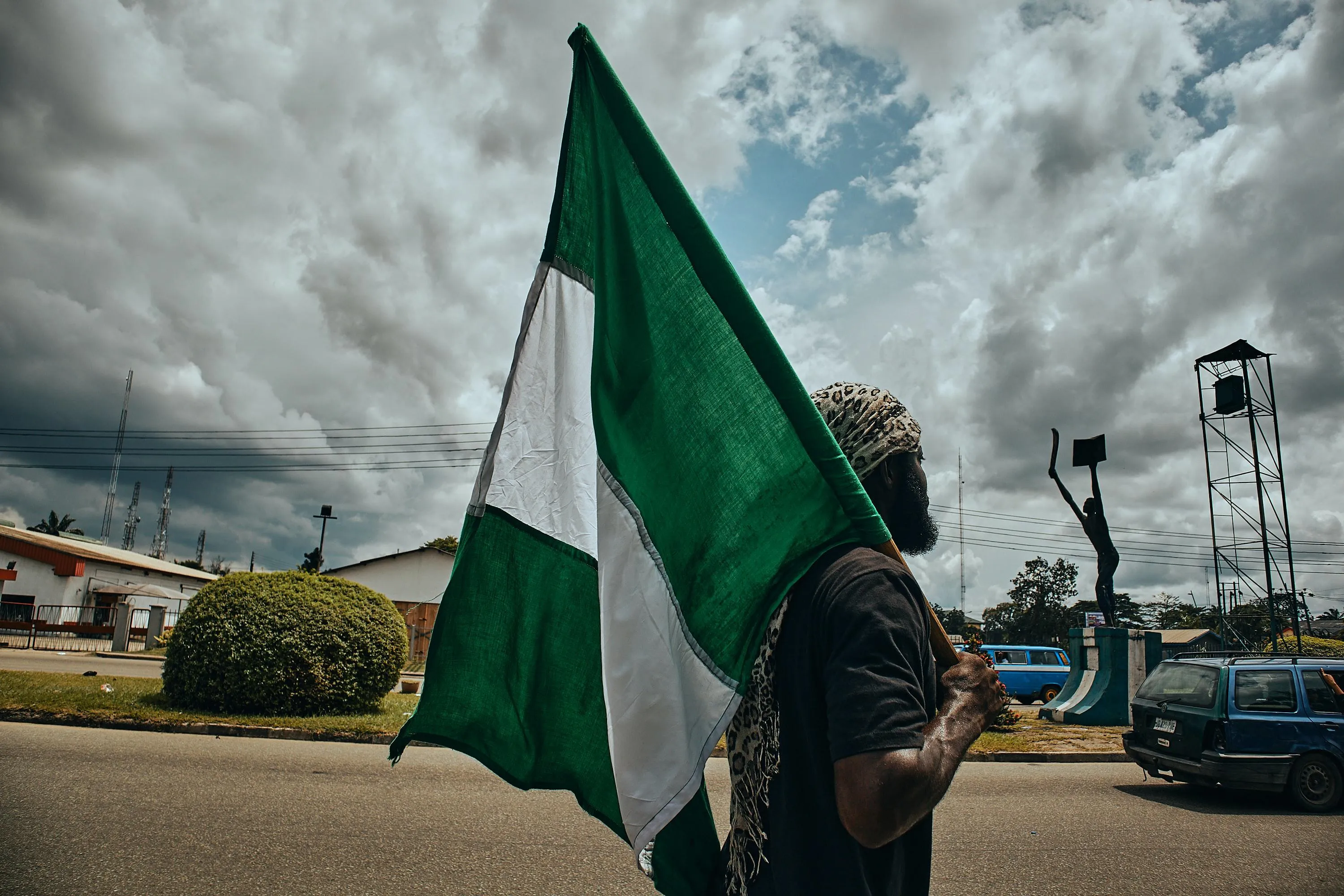23 January 2023
Upcoming general election in Nigeria 'will not be business as usual'
Dr Louis Ezeilo
Many are predicting 2023 as the year that will determine much of the political, economic and social future of Nigeria.

This is the year Nigerians will elect a new president and commander-in-chief to oversee and run the affairs of the nation for the next four years and a national assembly to work with the new president. There is also the election of some state governors, together with some members of the state house of assembly.
The citizens are full of expectations coming into the new year. Some are looking at the year with a positive mindset that a new Nigeria will soon arrive, while some others have serious doubts and mixed feelings going into the election year. Whether this election will turn out to be like the elections conducted since the inception of the current democratic era from 1999, or a new change coming, is the topic of many discussions. For many, it is not going to be business as usual.
Previous elections in Nigeria have been marred with many irregularities and abuses of democracy to the extent that many citizens have given up hope of ever getting the process right. Corruption, religious sentiments, tribalism, money politics and other vices have made sure that the best candidates never emerged from the voting process. Powerful individuals have put the system in a weak position, resulting in the imposition of unwanted leaders on the people through various channels. However, the current run of events is showing that the 2023 elections will not be conducted at the whims and caprices of a few powerful politicians and ‘godfathers’.
There are several reasons to believe that the 2023 election, scheduled for 25 February, will not be business as usual....

General dissatisfaction and disappointment with the ruling class
Since 1999, citizens have voted in the hope of getting better leaders who will turn around the fortunes of the country, but this has so far remained an unrealized dream as things seem to have deteriorated with each regime. The 16-year leadership of the People’s Democratic Party (PDP) from 1999-2015 was viewed as corrupt and lawless. This led to the clamour for change in the 2015 election that brought the All-Progressive Congress (APC) to power. When asked if the desired aspirations and results had been achieved, though, most citizens would describe the last eight years of the APC as a nightmare they can’t wait to wake up from. This has led to many Nigerians wanting to ‘change the change’ mantra of the ruling party as they have failed in the majority of their promises to the people.
Increase in poverty, insecurity, secession agitations and other social issues
The various sectors of life, such as education, agriculture, power, science, infrastructure, and the economy, have not seen the improvements voters desired. The current administration promised to lift many citizens out of poverty, but current statistics show they have actually ended up sinking 133 million citizens into multidimensional poverty. Workers under different labour organizations have embarked on repeated rounds of industrial action to register their dissatisfaction with the government and to demand better conditions of service. This country has never been more divided than in the last eight years.
Kidnapping, banditry, and other forms of insecurity have become the order of the day leading to senseless destruction of lives and properties. The cost of living in the country is at the peak, with food prices seeing sharp increases. According to the recently released CPI report for the month of June 2022, by the National Bureau of Statistics (NBS), Nigeria’s inflation rate hits a 65-month high of 18.6 per cent in June 2022. Many are hungry, sick, insecure, and frustrated and, as such, they want to put an end to their misery through the coming general elections.
Youth restiveness
This election has seen a massive awakening of Nigeria’s youth, as they want to take back their country. They have always been promised that they are the future, but they are tired of waiting. The future is now. This can be seen in the sharp increase in the number of youths who registered for the permanent voter’s card in 2022. Social media has provided a robust platform for the young to engage themselves in political discussions. There is social media wave of support for various candidates under various interest groups and organisations. According to the Independent National Electoral Commission (INEC) data in the newly concluded voters’ registration, out of the 12.2 million newly-registered voters, more than 10 million are within the youthful age of 18-49. This shows that the youth, when fully mobilised, can surely determine who wins this election.
Religion
Nigeria has always been divided along religious lines. The Muslim/Christian dichotomy is always seen in elections. People always seek a balance of the two major religions in any level of politics. A same-faith ticket is not seen as ideal and most times not welcomed by all. The APC coming into the election has a Muslim – Muslim ticket for the president and vice-president. This may likely affect the votes of the party from the Christian communities. Also, the four major candidates are made up of three Muslims and a Christian. The Muslim votes are likely to be shared among the three with majority of the Christians voting for the Christian candidate.
Tribal sentiments
Three of the major candidates come from the three major ethnic groups in the country. The APC candidate Bola Tinubu (who is contesting for the first time) is a Muslim Yoruba from the south-west of the country. The PDP candidate, Alhaji Atiku Abubakar (who has contested on several occasions) is a Muslim Fulani northerner while Peter Obi, of the Labour Party, (who is contesting for the first time) is an Igbo Christian. Voters may likely vote along tribal lines. However, it may not totally determine the results as some candidates have made headway into other tribes and regions.
Internal party issues
Most of the political parties have internal party issues that weaken their mechanism to co-ordinate complete support for their candidates. The PDP has the G5 governors who are yet to be convinced to support their candidate, Atiku Abubakar. The post primary election of the APC which brought Bola Tinubu left some of the contestants aggrieved. Some have not openly supported the flag bearer Ahmed Tinubu. The Labour Party, meanwhile, is accused of lacking the visible structure to win elections. Therefore, all these party issues leave most of the decision on who wins the election to the electorates.
Emergence of Peter Obi
The coming of Mr Obi as the Labour Party candidate became the game changer in the election politics of 2023. Mr Obi, who left the PDP for Labour Party, did not just leave alone, he went with the majority of the support base of the PDP. The south-east and south have always been the stronghold of the PDP but, with the so-called ‘Obedient Movement’, the PDP lost most of its support from the two regions. The movement also has great fans in the north-central and other parts of the north-west and north-east.
Financial prowess
Previously, elections in Nigeria have been determined by the financial prowess of the candidates. People with big war-chests use money to buy and influence voters and the voting process. Recently, there have been vigorous campaigns against money politics and vote-buying. People are gradually waking up to the dangers inherent. Also, the new Central Bank cash policy should make it difficult for politicians to have liquid cash to share and buy votes at the polling units. Concerned agencies are also out to arrest and prosecute offenders of this act.
INEC as electoral umpire
The success or failure of this election rests on the table of the electoral umpire, the INEC. They have promised to conduct a credible, free, and fair election and they have the support and platform to do so. The recent electoral act signed by the president gives INEC a lot of powers to determine how best to conduct an election. It also reduces the influence of politicians in the process. Also, there has been recent improvement in election technology, especially with the introduction of the BIVAS. It will sanitise accreditation and make sure only the eligible and correct voters cast their vote on the ballot. There is also the electronic transfer of results that removes much of mid-way irregularities associated with manual collection of election results. This is a major boost and brings hope to many citizens of achieving a credible, fair, and free election this time around.
President Muhammadu Buhari and his last gift to Nigerians
The president, Muhammadu Buhari has demonstrated a willingness to give Nigerians the most credible election ever as he prepares to leave office. He has given the necessary support to the electoral body and has not been seen to be interfering in their work. His body language shows he supports for a level playing field for all candidates.
International communities and non-governmental organizations
Lastly, there is need to recognise the vested interest of the international communities, non-governmental organisations, and other political and social stake holders. We have the European Union, the Africa Union, Centre for Democracy and Development (CDD) and other concerned organisations, countries and international bodies who are interested in monitoring the conduct of the 2023 elections.
Looking at the above reasons, one would conclude that most Nigerians are no longer comfortable with the status quo and thus, they yearn for a positive change. The INEC preparedness and the people’s determination to get it right this time is not open for negotiation.
This coming election shall be mostly decided by the electorate and not just a few powerful politicians. Despite all the challenges facing the conduct of this election, there is hope at last that the election will turn out for the best. A lot depends on Nigerians getting it right now.
